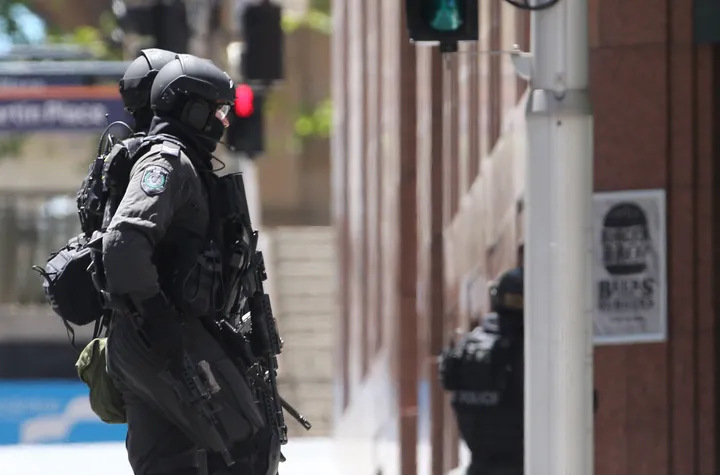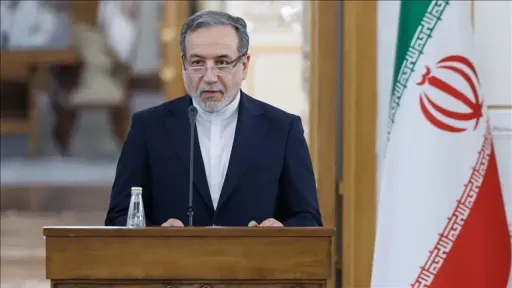Following the controversial announcement that the UAE and Israel would begin to normalise relations, the League of Arab States and the Organisation of Islamic Cooperation (OIC) were conspicuous in their silence.
The Arab League was set up in 1945 to safeguard Arab sovereignty and independence, while in 1969 the OIC was formed to represent "the collective voice of the Muslim world" on the back of an attempt to burn the Al Aqsa mosque in occupied East Jerusalem.
Neither organisation, however, felt they had anything to say on what the consequences of normalisation between the UAE and Israel would have on a future Palestinian state, nor its implications for the wider Muslim world.
"The OIC is a function of its member states,” said Dr Usaama al Azami, a British academic and a lecturer in Islamic Studies at Oxford University.
“With Saudi Arabia behind much of the funding and hosting the headquarters and given that the current secretary-general is a Saudi, there are likely severe limitations on what this ostensibly multi-lateral organisation can say,” he added speaking to TRT World.
TRT World attempted to get in touch with the OIC, speaking to several insiders. They all refused to give a comment on the record but directed TRT to its website instead. There also has been no commentary on its social media outlets.
The OIC, composed of 57 member states, with a collective population of over 1.8 billion Muslims, has been described as a hegemonic tool of Saudi Arabia through which it has been able to shape the agenda of the organisation in the last several decades.
Member states have been described as being submissive in the face of Saudi financial power. The Kingdom’s perceived legitimacy around the Muslim world has “provided the Kingdom carte blanche to claim the leadership role of the organisation.”
On paper, the OIC has great potential to bring Muslim countries together to resolve some of the most common problems afflicting them. After the UN, the OIC is the largest multilateral organisation in the world. In practice, though, it has often been left wanting.
Saeb Erekat, secretary of the Palestinian Liberation Organisation’s Executive Committee asked why the Arab Leauge and the OIC have not yet met following the decision by the UAE and Israel.
“I am sure that these organisations have been dissolved and this will become clear soon,” he said, adding: “If the Secretaries of the Arab League and the OIC are not able to defend the decisions of their organisations, why do they remain?”
Not fit for purpose
In recent years and in particular, since Mohammad bin Salman (MBS) rose to be the heir apparent to the Saudi throne becoming the Crown Prince in 2017, questions surrounding the efficacy of the OIC and the Arab League have only grown louder.
The Saudi monarchy has seemed to steer the country towards normalising relations with Israel and have not made any statements contradicting actions taken by the UAE.
“Given Saudi Arabia's current political orientation under the Crown Prince...the OIC is probably not able to make any politically significant moves without approval,” says Azami.
Recently the UAE thwarted attempts by Pakistan at the OIC to investigate India for rising Islamophobia in the country and the anti-Muslim violence in India-administered Kashmir. The absolute Gulf monarchy has in recent years bolstered its links with the Hindu nationalist far-right Prime Minister of India, Narendra Modi.
Pakistan’s Foreign Minister Shah Mahmood Qureshi recently warned the OIC that it could part ways with the organisation if it continued to remain silent on issues surrounding Palestine and Kashmir.
“These sorts of organisations, if they are not going to respond to the needs of the Muslims or crises in Muslim populations whether that be in Palestine, China or Kashmir - none of these issues have been addressed by the OIC, they become obsolete as institutions,” warned Azami.
The spokesman of Yemen’s Houthi movement, Mohammed Abdulsalam, also denounced the silence by the OIC and the Arab League.
“A shameful silence hangs over the Arab League and the OIC,” said Abdulsalam on Twitter, adding that “the defence of Palestine is a common cause for all Arabs and Muslims. Their silence is a blessing to normalisation and encouragement for betrayal.”
In a sign of how far the Arab League has come in tacitly accepting normalisation with Israel when Egypt signed a peace agreement with Tel Avi in 1979 it was suspended from the organisation only being readmitted 10 years later in 1989. Fast forward most than 30 years and the result could not be more different.
TRT World also contacted the Arab League, however, no one had responded at the time of publication. Its social media accounts have made no comment in regards to the Israeli-UAE deal. The official website of the organisation says the “League of Arab States - Under Construction.”
“In some respects, the political dysfunction of Muslims states and these kinds of transnational organisations that try to bring Muslims together has been observable for many years, indeed decades, it's not something new,” said Azami.
“Powerful Muslim states have precipitated or exacerbated these crises. Naturally, that doesn't bode well and it’s not sustainable over the long term,” he added.























